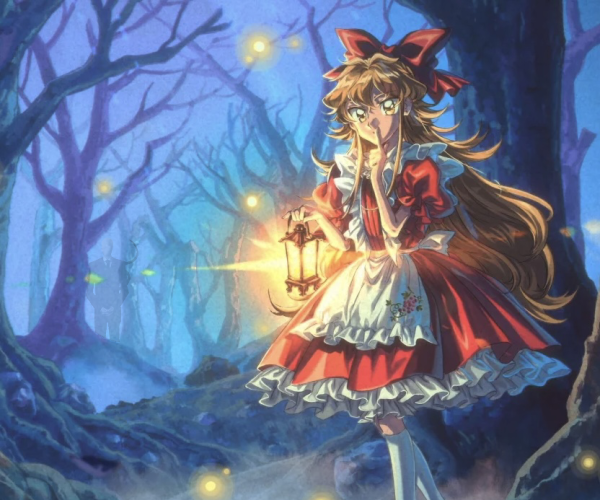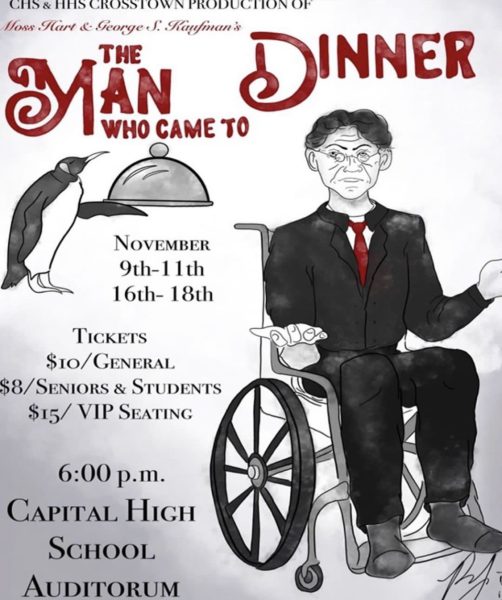Stop the Fan Wars
Editorial of Sports Culture Vs. Entertainment Culture
February 10, 2017
Imagine this familiar scene: you, your friends, and your family dress up in your favorite costumes and go watch your favorite people play your favorite scene, while getting so verbally excited, strangers notice your interest. No, I am not talking about Comic Con or even movie culture. Actually, I am describing the basic elements associated with the Super Bowl and other valued sporting events, but you never would have guessed it.
Two of the most popular pastimes in this country are sports and movies. The two evoke a kind of fierce passion for all who watch them. The passion of sports fans varies: from the war-painted, every-game attenders, to the casual viewers from home. Likewise, the level of movie fans are equally as varied; from the person who dresses up as their favorite characters of a show and goes to the theater to see it an impressive amount of times, to the person who watches a movie once in the theater, likes it, but never mentions it again, or even waits until it comes out on streaming services or DVD.
When looking at such popular activities as sports and movies, it raises the question: what does it mean to be a fan? Does our society consider some fans more “normal” than others?
Sports fans wear jerseys, hats, hoodies, sweatpants, etc. often and it is not viewed as strange. Conversely, those who wear shirts with their favorite movie or tv show on it, often receive looks of disapproval from their peers in the halls, at stores, or in public. This can make people more self-conscious, afraid of what their peers think, and feel ashamed of what they like.
This happened to me, in middle school. I wore a sweater with my favorite Nickelodeon show on it. I was so excited to wear it because I liked the show and it was a really cool sweater. To my surprise, when I got to school, I received nothing but weird looks and even comments from fellow students that I couldn’t “seriously be into that show.” This experience caused me to feel really badly about myself. I felt like I had done something wrong and it eroded my confidence in public. Granted, that was middle school, but the same principles hold true for high school and beyond; the only difference now is that people might not be so bold as to insult you to your face.
For sports fans, the excitement just ended with Super Bowl LI on February 5th. It is hard to forget how much of a spectacle the event is. “It only took 50 years to get there,” Super Bowl commentator Joe Buck said.For the first time in Super Bowl history, the game went into overtime. The Patriots beat the Falcons with a score of 34-28 after four hours of an unpredictable battle. This was not the only history that was made that night: Tom Brady won his 5th Super Bowl, making him the most decorated quarterback in history, and was also named MVP.
For comic book, movie, and tv fans, Comic Cons around the world are also approaching. From the famed San Diego Comic Con to lesser known events like Wondercon, the many fans for these events have a whole world of things to be excited for. Unfortunately, many of these fans face judgment for their excitement. We need to respect each other and not make someone feel bad for something they like. Whether it’s disappointment for the Patriots’ win or apathy towards making another Spider-Man film, everyone needs to be mindful that these are personal and that people can be easily offended.
To those of you who feel as though your fandom is disrespected, a recent poll at HHS revealed that 76% of students prefer movies over sports. This goes to show that if the majority of people enjoy movies over sports, this prejudice should not be a problem.
That being said, we all need to ask ourselves: why is it not ‘weird’ when people dress up and decorate their homes and cars in honor of the Super Bowl or other sporting events, but doing the exact same thing for Comic Con or a new film is weird, and garners judgment?
I’m not saying that when a movie comes out that people need to put up a bunch of memorabilia and decorate their homes and have a huge party, though if you want to, isn’t that what sports enthusiasts do? I am asking, how long has society put sports over everything else? The reality is that people have their own likes and dislikes and, therefore, shouldn’t be judged based on their passion for sports or movies.












